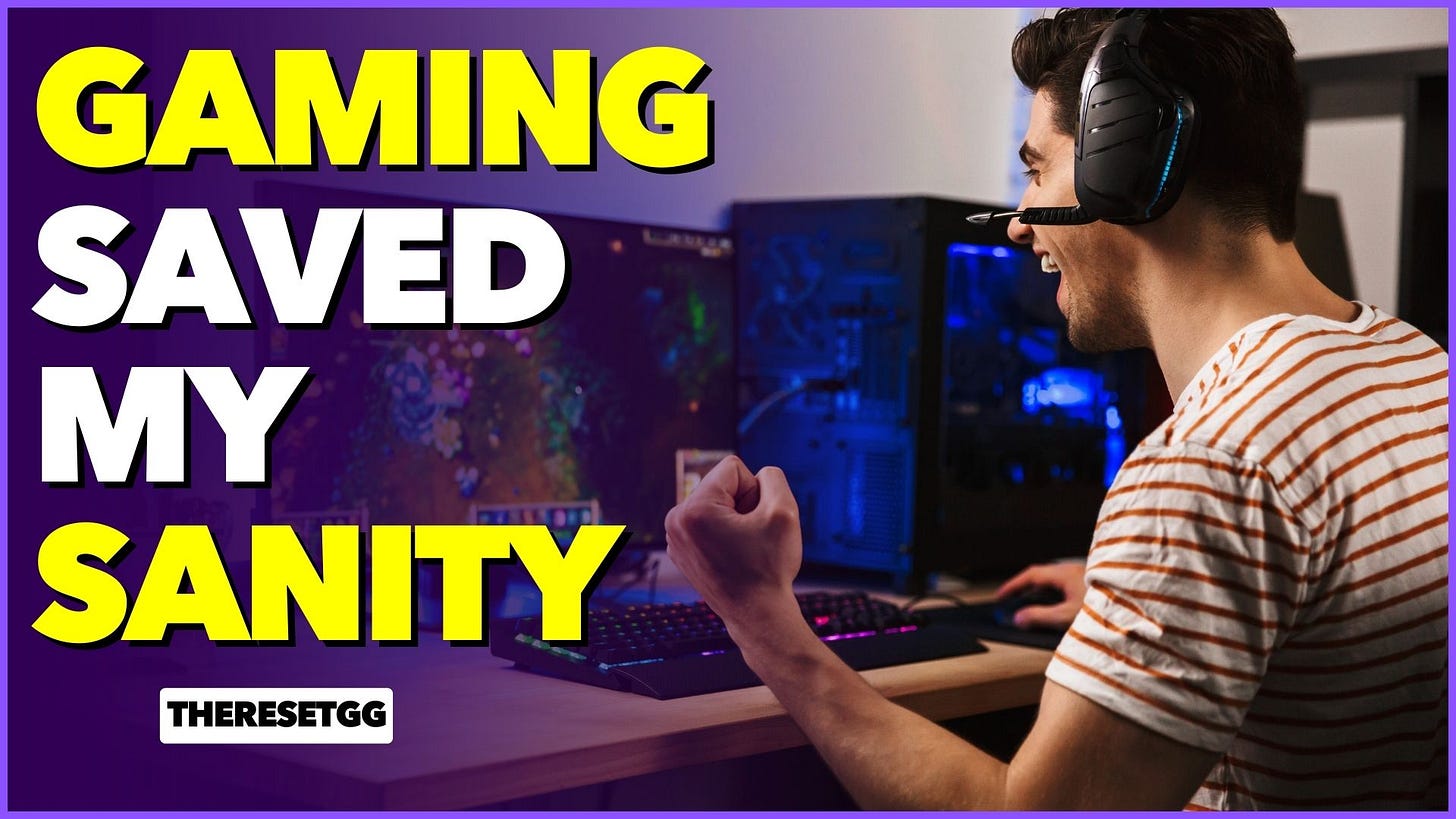Gaming Isn’t a Waste of Time - It’s One of the Last Places Adults Can Breathe
What started as a guilty hobby turned into one of the healthiest resets in my week.
There have been times I genuinely believed I should quit gaming.
Not because I stopped enjoying it. But because I convinced myself that, if I wanted to be a better husband, dad, and professional, gaming had to be the first thing to go. The extra. The distraction. The waste.
But over time, I started to realize something deeper. That mindset wasn’t really about gaming. It was about how I’d been trained to see joy.
Somewhere along the line, we started believing that joy has to be earned. That hobbies only count if they lead to something productive or visible. That if you can’t quantify it, post it, monetize it, track it, it doesn’t really matter.
Gaming challenges that belief immediately.
I’ve had twenty-minute sessions that did more to reset my mind than anything else that week. Not marathon grinds. Not all-night campaigns. Just a brief window where I could actually be present. Not chasing metrics. Not optimizing. Just breathing. Laughing. Connecting. Being in the moment.
That’s the real power of gaming: it brings you back to yourself in a world that’s constantly trying to pull you apart.
So no, gaming isn’t a waste of time. It’s one of the few places where adults can fully focus, decompress, and feel joy that doesn’t need to be justified.
How I Made Gaming More Intentional - And Why It Changed Everything
The shift happened when I started keeping a gaming journal.
Nothing fancy. Just the date, the game I played, how long I played, and a quick note about how it made me feel.
At first, it felt unnecessary. Like I was trying to rationalize fun. But it ended up doing the opposite.
It helped me let go of the pressure to make it count. I stopped chasing long sessions. I stopped worrying about which game I should play. And most importantly, I stopped seeing gaming as something I had to earn.
Instead, it became something I chose with intention. A way to reset. A way to be human for a bit.
And funny enough, when I gamed with that mindset, the rest of my life got better.
I was more present with my family. I could focus more easily at work. I felt less anxious and more grounded. It was like I’d found a quiet room in a noisy house.
The trick isn’t gaming less.
The trick is gaming better.
With intention. Without guilt. And without pretending that joy has to come with a receipt.
If you’re feeling burned out, scattered, or like your attention is constantly under attack, I highly recommend doing three simple things:
1. Start a low-pressure gaming journal.
2. Let go of the idea that fun needs to be earned.
3. Schedule short, intentional play sessions, even just twenty minutes.
You might be surprised how quickly those small moments help you feel present again.
A Thought Before You Go
If this hit home, consider subscribing. I write for people who care about living well through games, creativity, or reclaiming the small moments that keep us sane.
You can also forward this to a friend who needs a reminder that joy doesn’t have to be justified.
And I’d love to hear from you:
What would your gaming life look like if it didn’t need to be justified?
Would you game more? Less? Differently?
Have you ever tried journaling your sessions?
Hit reply or drop a comment. I read every one.
Thanks for reading.




> “Somewhere along the line, we started believing that joy has to be earned. That hobbies only count if they lead to something productive or visible. That if you can’t quantify it, post it, monetize it, track it, it doesn’t really matter.”
Yes, this is exactly the problem. We’re not “supposed” to have fun for its own sake: everything we do has to either be productive or signal others.
I’ve had similar conflict with balancing family life and gaming. Never sure if I’m wasting time or just enjoying a hobby. I think I’m going to start looking at it almost like mental medicine and be intentional with it as you suggest. I also love the idea of journaling so you can look back on your experiences and maybe tweak things if necessary (ie types of games, time playing games etc).
Anyways, yes, I think it’s healthy to allocate time to gaming the same way you would exercise or reading. What do you think? Am I missing the point?